- Home
- J. G. Ballard
The Kindness of Women Page 2
The Kindness of Women Read online
Page 2
Putting aside these thoughts, and cheered by the day ahead, I reached the Avenue Joffre and the long tree-lined boulevards of the French Concession that would carry me to the Bund. Quick-tempered French soldiers guarded the sandbagged checkpoint by the tramline terminus. They stared warily at the empty sky and spat at the feet of the passing Chinese, hating this ugly city to which they had been exiled across the world. But I felt a surge of excitement on entering Shanghai. To my child’s eyes, which had seen nothing else, Shanghai was a waking dream where everything I could imagine had already been taken to its extreme. The garish billboards and nightclub neon signs, the young Chinese gangsters and violent beggars watching me keenly as I pedalled past them, were part of an overlit realm more exhilarating than the American comics and radio serials I so adored.
Shanghai would absorb everything, even the coming war, however fiercely the smoke might pump from the warships in the Whangpoo River. My father called Shanghai the most advanced city in the world, and I knew that one day all the cities on the planet would be filled with radio stations, Hell Drivers, and casinos. Outside the Canidrome the crowds of Chinese and Europeans were pushing their way into the greyhound arena, unconcerned by the Kuomintang armies around the city waiting to attack the Japanese garrison. Gamblers jostled each other by the betting booths of the jai alai stadium, and the morning audience packed the entrance of the Grand Theatre on the Nanking Road, eager to see the latest Hollywood musical, Gold Diggers of 1937.
But of all the places of wonder, the Great World Amusement Park on the Avenue Edward VII most amazed me. Unknown to my parents, the chauffeur often took me into its dirty and feverish caverns. After collecting me from school, Yang would usually stop the car outside the Amusement Park and carry out one or other of the mysterious errands that occupied a large part of his day.
A vast warehouse of light and noise, the Amusement Park was filled with magicians and fireworks, slot machines and singsong girls. A haze of frying fat gleamed in the air and formed a greasy film on my face, mingling with the smell of joss sticks and incense. Stunned by the din, I would follow Yang as he slipped through the acrobats and Chinese actors striking their gongs. Medicine hawkers lanced the necks of huge white geese, selling the cups of steaming blood to passersby as the ferocious birds stamped their feet and gobbled at me when I came too close. While Yang murmured into the ears of the mah-jongg dealers and marriage brokers, I peered between his legs at the exposed toilets in the lavatory stalls and at the fearsome idols scowling over the temple doorways, at the mysterious peep shows and massage booths with their elegant Chinese girls, infinitely more terrifying than Olga, in embroidered high-collared robes slit to expose their thighs.
This Saturday, however, the Great World was closed. The dance platforms, dried-fish stalls, and love-letter booths had been dismantled, and the municipal authorities had turned the ancient building into a refugee camp. Hundreds of frantic Chinese were forcing their way into the ramshackle structure, held back by a cordon of Sikh police in sweat-stained khaki turbans. Like a team of carpet beaters, the Sikhs lashed at the broken-toothed peasant farmers with their heavy bamboo staves. A burly British police sergeant waved his service revolver at the monkey-like old women with bound feet who tried to push past him, their calloused fists punching his chest.
I stood on the opposite sidewalk, listening to the sirens sounding from the river, a great moaning of blind beasts challenging each other. For the first time I guessed that war of a kind had already come to Shanghai. Buffeted by the Chinese office clerks, I steered my cycle along the gutter and squeezed past an armoured riot van of the Shanghai police, with its twin-handled Thompson machine gun mounted above the driver’s cabin.
Breathless, I rested in the doorway of a funeral parlour. The elderly undertaker sat among the coffins at the rear of the shop, white fingers flicking at the beads of his abacus. The clicks echoed among the empty coffins and reminded me of the superstition that Yang had graphically described, snapping his fingers in front of my nose: “When a coffin cracks, the Chinese undertaker knows he will sell it…”
I listened to the abacus, trying to see if the coffins gave a twitch when they cracked. Soon a lot of coffins in Shanghai would be cracking. The old man’s fingers flicked faster as he watched me with his vain, dreamy eyes. Was he adding up all those who were going to die in Shanghai, trying to reach my own number, somewhere among the cracking coffins and clicking beads?
Behind me a car horn blared into the crowd. A white Lincoln Zephyr was forcing its way through the traffic, hemmed in by the rickshaw coolies and refugees clambering into the entrance of the Amusement Park. David Hunter knelt on the rear seat beside his Australian nanny, blond hair in his eyes as he squinted at the pavement. Forgetting the coffins and the clicking abacus, I pushed my cycle along the gutter, aware that David would see me once the traffic had cleared.
An air-raid klaxon sounded from one of the office buildings, overlaid by a heavy, sustained rumble like a collapsing sky. A shouting coolie strode towards me, bales of firewood on a bamboo pole across his shoulders, from which the veins stood out like bloated worms. Without pausing, he kicked the cycle out of my hands. I bent down to rub my bruised knees and tried to reach the handlebars, but the rush of feet knocked me to the ground. Winded, I lay among the old lottery tickets, torn newspapers, and straw sandals as the white Lincoln cruised past. Playing with his blond fringe behind the passenger window, David frowned at me in his pointy way, unable to recognise me but puzzled why an English boy in a Cathedral School blazer had chosen this of all moments to roll about in a filthy gutter.
The klaxon wailed, keening at the sky. Chinese office workers, women clerks, and hotel waiters were running down the Nanking Road from the Bund. An immense cloud of white steam rose from the Whangpoo River behind them, flashes of gunfire reflected in its lower surface. Around it circled three twin-engined bombing planes, banking as they flew through its ashen billows.
A squadron of Chinese aircraft were bombing the Idzumo and the Japanese cotton mills at Yangtzepoo, little more than a mile from the Bund across the Garden Bridge. The boom of heavy guns jarred the windows of the office buildings in the Thibet Road. A tram clanked past me towards the Bund, its passengers leaping into the road. High above them, on the roof of the Socony-Vacuum building, stood a party of unconcerned Europeans in white tennis clothes, binoculars in hand, pointing out details of the spectacle to each other.
Had the war really started? I was expecting something as organised and disciplined as the Military Tattoo. The planes lumbered through the air, as if the pilots were bored by their targets and were circling the Idzumo simply to fill in time before returning to their airfield. The French and British warships sat at their moorings near the Pootung shore, signal lights blinking softly from their bridges, a vaguely curious commentary on the bombing display downriver.
Mounting my cycle, I straightened the handlebars and brushed the dust from my blazer—the officious junior masters at the school liked to roam the city in their spare time, reporting anyone untidily dressed. I set off after the empty tram, steering between the polished rails. When it neared the Bund the conductor dismounted, swearing at the driver and waving his leather cash bag. The tram’s warning bell clanged at the empty street, watched by groups of Chinese clerks pressing themselves into the doorways of the office buildings.
A water spout rose from the choppy waves beside the bow of the Idzumo, hovered for a second, and then surged upwards in a violent cascade. Arms of hurtling foam punched through the air and soared high above the radio aerials and mast tops of the ancient cruiser. A second squadron of Chinese bombers swept in formation down the Whangpoo, midway between the Bund and the Pootung shore, where my father’s cotton mill lay behind a veil of greasy smoke. One of the planes lagged behind the others, the pilot unable to keep his place in the formation. He rolled his wings from side to side, like the stunt pilots at the aerobatic displays at Hungjao airfield.
“Jamie, leave your bike! Co
me with us!”
The white fenders of the Lincoln Zephyr had crept behind me. David’s Australian nanny was shouting to me, her arms stretched across the shoulders of the nervous Chinese chauffeur. Steadying her straw hat with one hand, she waved me towards the car. Nurse Arnold had always been easygoing and friendly, so much more pleasant to me than Olga, and I was surprised by her bad temper. David had recognised me, a gleam of triumph in his eyes. He brushed the blond hair from his forehead, aware that he was about to make the first capture of our marathon game of hide-and-seek.
The Idzumo was laying smoke around itself. Scrolls of oily vapour uncoiled along its bow. Through the sooty clouds I could see the tremble of antiaircraft fire, the sounds lost in the monotonous drone of the Chinese bombers.
“Jamie, you stupid…!”
I pedalled away from them into a wall of noise and smoke. Glass was falling from the windows of my father’s building in the Szechuan Road. Office girls darted from the doorways, their white blouses speckled with fine needles. My front wheel jolted over a piece of masonry shaken loose from a cornice. While I straightened the pedals a low-flying bomber veered away from the Japanese antiaircraft fire. It flew above the Bund, exposed its open bombing racks, and released two bombs towards the empty sampans moored to the quay.
Eager to watch the water spouts, I mounted my cycle, but a pair of powerful hands gripped my armpits. A uniformed British police sergeant whirled me off my feet. He kicked away my cycle and crouched by the steps of the Socony building. As he held me against his hip the metal hammer of his revolver tore the skin from my knee.
Exploding debris burst between the hotels and department stores of the Nanking Road and filled the street with white ash. A wave of burning air struck my chest and threw me to the ground beside the sergeant. Chinese office workers with raised hands ran towards us through the billows of dust, blood streaming from their foreheads. One of the stray bombs had fallen into the Palace Hotel and the other into the Avenue Edward VII beside the Great World Amusement Park. The buildings in the Szechuan Road rocked around us, shaking a cascade of broken glass and roofing tiles into the street.
Beside the kerb a matronly Eurasian woman stepped from her car, blood running from her ear. She touched it discreetly with a silk handkerchief as the police sergeant propelled me towards her.
“Keep him here!” He jerked my shoulders, as if I were a sleeping doll and he was trying to wake me. “Lad, you stay with her!”
When he ran towards the Nanking Road the Eurasian woman released my hand, waving me away, too distracted to be bothered with me. Blood seeped down my leg, staining my white socks. Looking at the thin trickle, I noticed that I had lost one of my shoes. My head felt empty, and I touched my face to make sure that it was still there. The explosion had sucked all the air from the street and it was difficult to breathe. Gesturing to me in an absent way, the Eurasian woman wandered through the debris, wiping the dust from her leather handbag. The blood ran from her ear as she stared at the broken glass, trying to recognise the windows of her own apartment.
An ambulance of the Shanghai Volunteer Force drove past, the glass spitting under its tyres. I realised that I was deaf, but everything around me was deaf too, as though the world could no longer hear itself. Two hundred yards from the Great World Amusement Park I could see that most of the building had vanished. Smoke rose from its exposed floors, and an arcing electric cable sparked and jumped like a swaying firecracker.
Hundreds of dead Chinese were lying in the street among the crushed rickshaws and burnt-out cars. Their bodies were covered with white chalk, through which darker patches had formed, as if they were trying to camouflage themselves. I walked among them, tripping over an old amah who lay on her back, pouting face covered with powder, scolding me with her last grimace. An office clerk without his arms sat against the rear wheel of a gutted bus. Everywhere hands and feet lay among the debris of the Amusement Park—fragments of joss sticks and playing cards, gramophone records and dragon masks, part of the head of a stuffed whale, all blanched by the dust. A bolt of silk had unravelled across the street, a white bandage that wound around the lumps of masonry and the mislaid hands.
I waited for someone to call to me, but the air was silent and ringing, like the pause after an unanswered alarm. I could no longer hear my feet as they cracked the blades of broken glass. I walked back to the Hunters’ Lincoln Zephyr. The chauffeur stood in his pallid uniform by the open driver’s door, brushing away the dust that covered the windshield. David sat alone in the back, hands pressed to his mouth. He ignored me and stared at the torn seat cover with fixed eyes, as if he never wanted to see me again.
I looked through the broken windows at Nurse Arnold, who was lying across the front seat. Her hair fell across her face, forced by the explosion into her mouth. Her hands were open, white palms exposed, displaying to any passerby that she had washed them carefully before she died.
* * *
Later, when he visited me in Shanghai General Hospital, David asked me about the blood on my leg. Curiously, this was the only blood that he had seen on Bloody Saturday.
“I was wounded by the bomb,” I told him.
I had begun to boast in a small way, but more truthfully than I realised. One thousand and twelve people, almost all Chinese refugees, were killed by the high-explosive bomb that fell beside the Great World Amusement Park. As everyone constantly repeated, proud that Shanghai had again excelled itself, this was the largest number killed by a single bomb in the history of aerial warfare. My own trivial injury numbered me among the thousand and seven who were wounded. Although not the youngest of those injured, I liked to think that I was No. 1007, which I firmly inked on my arm.
Months of fierce fighting took place around the International Settlement before the Japanese were able to drive the Chinese from Shanghai, during which tens of thousands of soldiers and civilians were to perish. But the Avenue Edward VII bomb, dropped in error by a Chinese pilot, had a special place in the mythology of war, a potent example of how mass death could now fall from the air.
At the time, as I rested in my bed at Shanghai General, I was thinking not of the bomb beside the Amusement Park but of my army of toy soldiers on the floor of my playroom. Even as the rescue workers of the Shanghai Volunteer Force carried me to their ambulance through the dusty streets I knew that I needed to rearrange their battle lines. I had seen the real war for which I had waited so impatiently, and I felt vaguely guilty that there were no models of dead Chinese in my boxes of brightly painted soldiers. Now and then my ears would clear for a brief moment, and the eerie sounds of Japanese artillery drumming at the hospital window seemed to call to me from another world.
Within a few days, however, my memories of the bombing had begun to fade. I tried to remember the dust and debris in the Szechuan Road, but the confused images in my head had merged with the newsreels I had seen of the Spanish Civil War and the filmed manoeuvres of the French and British armies. The fighting in the western suburbs of Shanghai veiled the window with curtains of smoke which the autumn winds drew aside to reveal the burning tenements of Nantao. The nurses and doctors who tested my ears with their tuning forks, Olga and my school friends, my mother and father on their evening visits, were like actors in the old silent films that David Hunter’s father screened for us against his dining-room wall. The bomb that destroyed the Amusement Park and killed more than a thousand people had become part of those films.
It was three months before I could go back to Amherst Avenue. Artillery shells from the rival Chinese and Japanese howitzers at Siccawei station and Hungjao were passing over the roof of our house, and my mother and father had moved to an apartment in the French Concession. The battle for Shanghai continued around the perimeter of the International Settlement, shaking the doors of our apartment and often jamming the elevator. Once Olga and I were trapped for an hour in the metal cage. She, who was usually so silent, spent the time delivering a torrent of words at me, well aware that I could he
ar not a single one. I often wondered if she was accusing me of starting the war, though in Olga’s eyes that would have been the least of my crimes.
In November the Chinese armies began to withdraw from Shanghai, retreating up the Yangtze to Nanking. They left behind them the devastated suburbs, which the Japanese occupied, ringing the International Settlement with their tanks and machine-gun posts. We were then safe to return to Amherst Avenue. While my parents talked to the servants I ran up to my playroom, eager to see my army of toy soldiers again.
The miniature battle of Shanghai had been swept aside. Broken soldiers lay scattered among my train set and model cars. Someone, perhaps Coolie or Number 2 Boy, had used my Robinson Crusoe as an ashtray, stubbing his half-smoked cigarettes into the cover as he watched nervously from the windows. I thought of reporting him to my father, but I knew that the servants had been as frightened as I was.
I gathered the soldiers together and later tried to play with them, but the games seemed more serious than those that had filled the playroom floor before Bloody Saturday. When David and I set out our rival armies it worried me that we were secretly trying to kill each other. Thinking of the severed hands and feet I had seen outside the Amusement Park, I put the soldiers away in their box.
But at Christmas there were new sets of soldiers to take their place, Seaforth Highlanders in khaki battle kilts and Coldstream Guards in bearskins. To my surprise, life in the International Settlement was unaffected by the months of fighting around the city, as if the bitter warfare had been little more than a peripheral entertainment of a particularly brutal kind, like the public strangulations in the Old City. The neon signs shone ever more brightly over Shanghai’s four hundred nightclubs. My father played cricket at the country club, while my mother organised her bridge and dinner parties. I served as a page at a lavish wedding at the French Club. The Bund was crowded with trading vessels and sampans loaded with miles of brightly patterned calico which my father’s printing and finishing works produced for the elegant Chinese women who thronged the Settlement. The great import-export houses of the Szechuan Road were busier than before. The radio stations broadcast their American adventure serials, the bars and dance halls were filled with Number 2 and Number 3 girls, and the British garrison staged its Military Tattoo. Even the Hell Drivers returned from Manila to crash their cars. While the distant war between Japan and Chiang Kai-shek continued in the hinterland of China the roulette wheels turned in the casinos, spinning their dreams of old Shanghai.

 High-Rise
High-Rise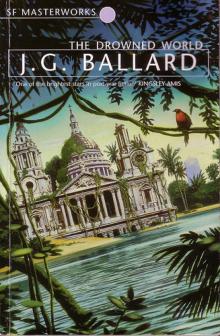 The Drowned World
The Drowned World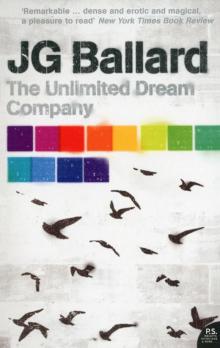 The Unlimited Dream Company
The Unlimited Dream Company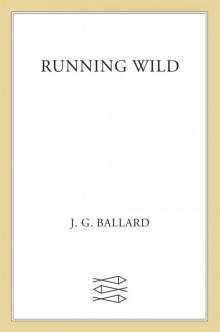 Running Wild
Running Wild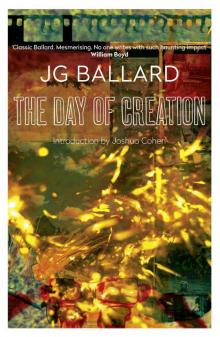 The Day of Creation
The Day of Creation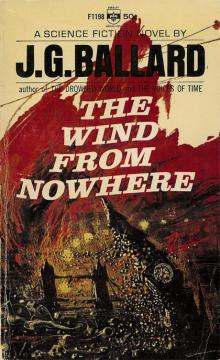 The Wind From Nowhere
The Wind From Nowhere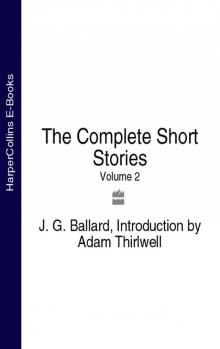 The Complete Short Stories, Volume 2
The Complete Short Stories, Volume 2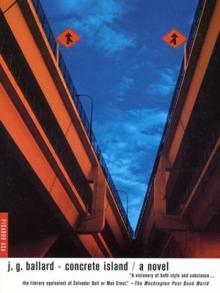 Concrete Island
Concrete Island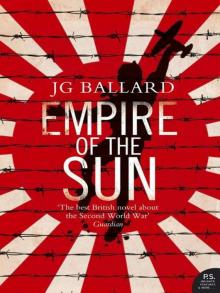 Empire of the Sun
Empire of the Sun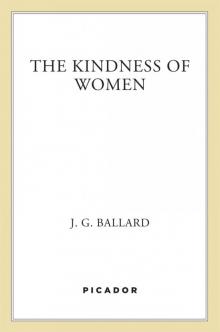 The Kindness of Women
The Kindness of Women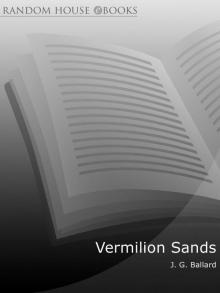 Vermilion Sands
Vermilion Sands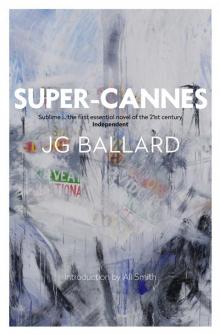 Super-Cannes
Super-Cannes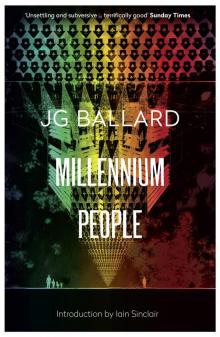 Millennium People
Millennium People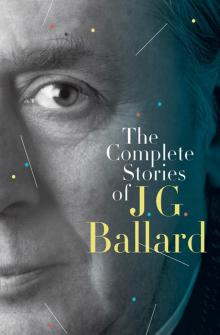 The Complete Stories of J. G. Ballard
The Complete Stories of J. G. Ballard Crash
Crash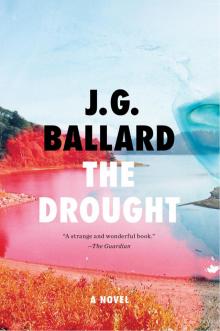 The Drought
The Drought The Atrocity Exhibition
The Atrocity Exhibition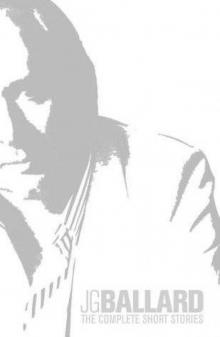 The Complete Short Stories: Volume 1
The Complete Short Stories: Volume 1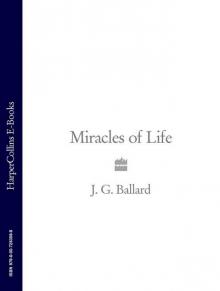 Miracles of Life: Shanghai to Shepperton: An Autobiography
Miracles of Life: Shanghai to Shepperton: An Autobiography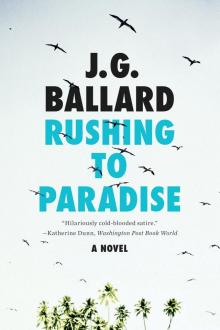 Rushing to Paradise
Rushing to Paradise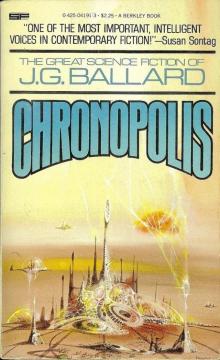 Chronopolis
Chronopolis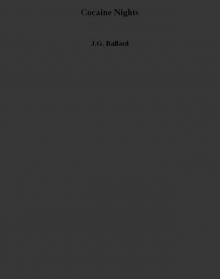 Cocaine Nights
Cocaine Nights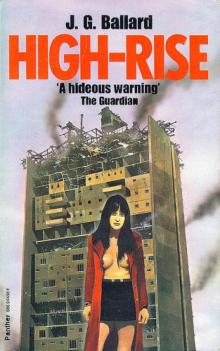 High Rise (1987)
High Rise (1987) The Complete Short Stories
The Complete Short Stories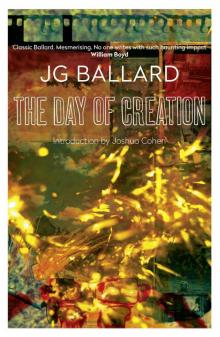 The Day of Creation (Harper Perennial Modern Classics)
The Day of Creation (Harper Perennial Modern Classics)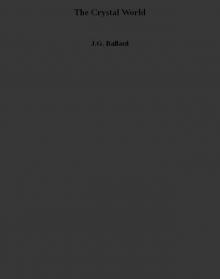 The Crystal World
The Crystal World